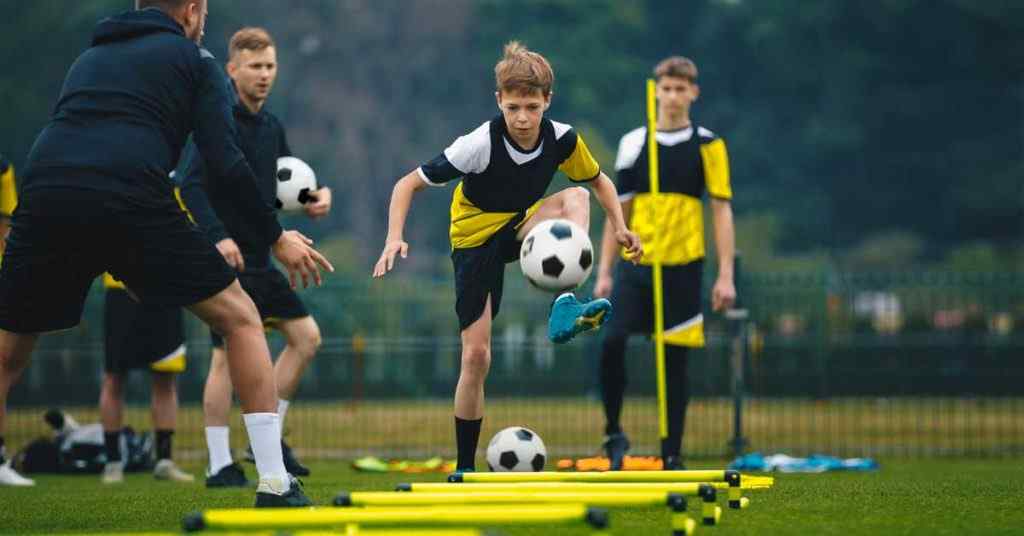
Are you a soccer enthusiast looking to learn the game? Or maybe you’re an aspiring athlete wanting to take your skills to the next level. Either way, learning how to play soccer can be intimidating and overwhelming.
But don’t worry – anyone can learn this exciting sport with some focus and effort! This article will cover the most crucial parts that’ll help you get better at soccer!
Learning to play soccer is a great way to stay active and have fun. The first step for an absolute beginner is to familiarize yourself with the game’s rules, including its positions and strategies. Once you understand the fundamentals, practice basic skills such as dribbling, passing, and shooting to develop your coordination and team-play abilities. Finally, join a recreational or competitive league to apply what you’ve learned in real games against other players. With these three steps, anyone can go from being a soccer novice to mastering the game at any level they wish!
5 Basic Rules Of Soccer
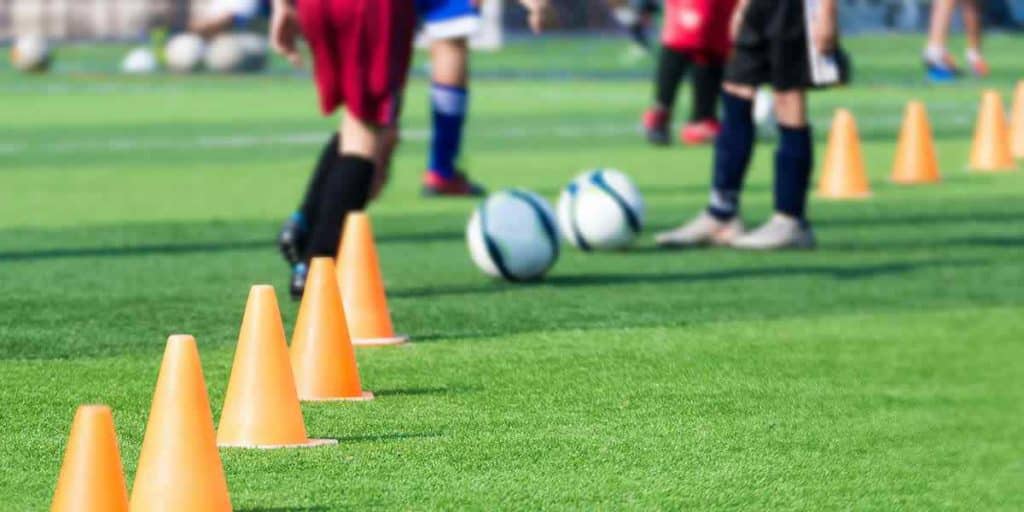
Soccer, also known as football, is played by two teams of eleven players on a rectangular field. It is a fast-paced and exciting game that is enjoyed by people all over the world. There are several basic rules that all players must follow in order to play the game properly and fairly.
1. No Hands
The first basic rule of soccer is that players are not allowed to use their hands to touch the ball, except for the goalkeeper. This means that all other players must use their feet, head, chest, or other parts of their body to control, pass, and shoot the ball.
This rule helps keep the game fluid and dynamic, as players must constantly move the ball with their bodies to advance it down the field.
2. Throw-Ins
Another important rule in soccer is the throw-in. When the ball goes out of bounds on the sideline, the team that did not touch the ball last must throw it back in to play.
The player must use both hands to throw the ball over their head and into the field of play. This is an excellent opportunity for teams to regain possession of the ball and start a new attacking play.
3. Goal and Corner Kicks
Goal and corner kicks are also essential rules in soccer. The goalkeeper takes a goal kick when the attacking team touches the ball last before it goes out of bounds over the goal line.
The ball is kicked from the goal area, and the opposing team must stay outside of the penalty area until the ball is kicked.
A corner kick is taken when the defending team touches the ball last before it goes out of bounds over the sideline near the goal. The attacking team takes the corner kick from the corner of the field, hoping to score a goal or create a scoring opportunity.
4. Direct & Indirect Kicks
There are also two types of kicks in soccer: direct and indirect. A direct kick is awarded to a team when the opposing team commits a foul or handball. The kicking team can score a goal directly from the kick if they can kick the ball into the goal without it touching another player first.
An indirect kick is awarded when the opposing team commits a lesser offense, such as an offside violation. The kicking team cannot score a goal directly from an indirect kick; the ball must touch another player before it can be scored.
5. Focus
Finally, the focus is an essential aspect of soccer. Players must stay focused throughout the game, as many different situations can arise on the field.
They must be able to anticipate their opponents’ movements and react quickly to make good decisions and stay in control of the ball. By following these basic rules and maintaining their focus, players can enjoy a fun and competitive game of soccer.
3 Main Skills in Soccer
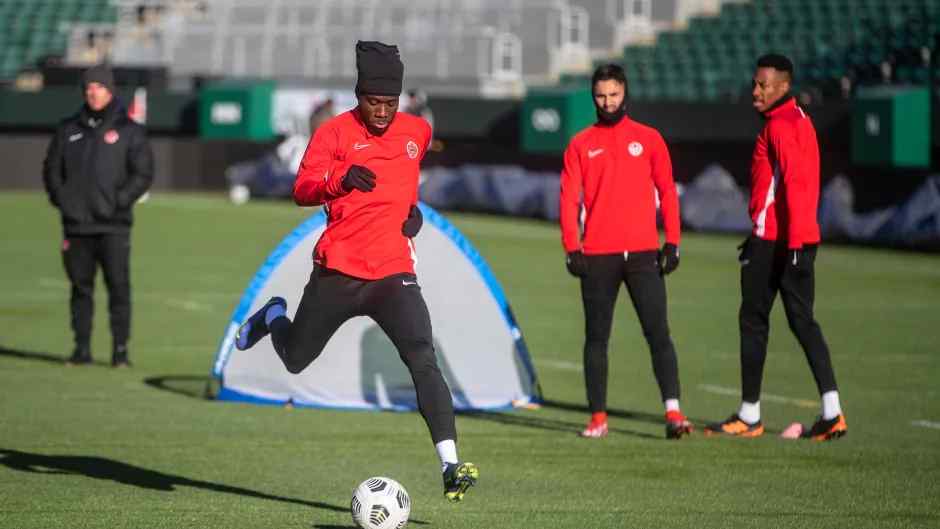
1. Ball Control
The first skill that every soccer player should focus on is ball control. This involves comfortably receiving, trapping, and passing the ball using different parts of the foot, including the inside, outside, and top of the foot.
Ball control is vital because it allows players to keep possession of the ball, set up scoring opportunities, and keep the opposition at bay. It takes time and practice to develop reasonable ball control, so be patient and don’t be afraid to make mistakes.
2. Passing
The second skill that is crucial in soccer is passing. This involves accurately kicking the ball to a teammate, either with a single touch or with multiple touches. Good passing allows players to move the ball up the field and create scoring chances.
It’s important to vary the type of passes you use, such as short passes to retain possession or longer passes to bypass the opposition. It’s also important to practice your accuracy, as well as your timing and weight of pass.
3. Shooting
Finally, shooting is an essential skill in soccer. It involves kicking the ball with power and accuracy toward the goal to score. Good shooting requires good technique and an understanding of how to generate power and control the ball.
Players should practice different types of shots, such as volleys, half volleys, and long-range shots. It’s also important to practice shooting under pressure and from different angles.
How Long Does It Take To Learn To Play Soccer?
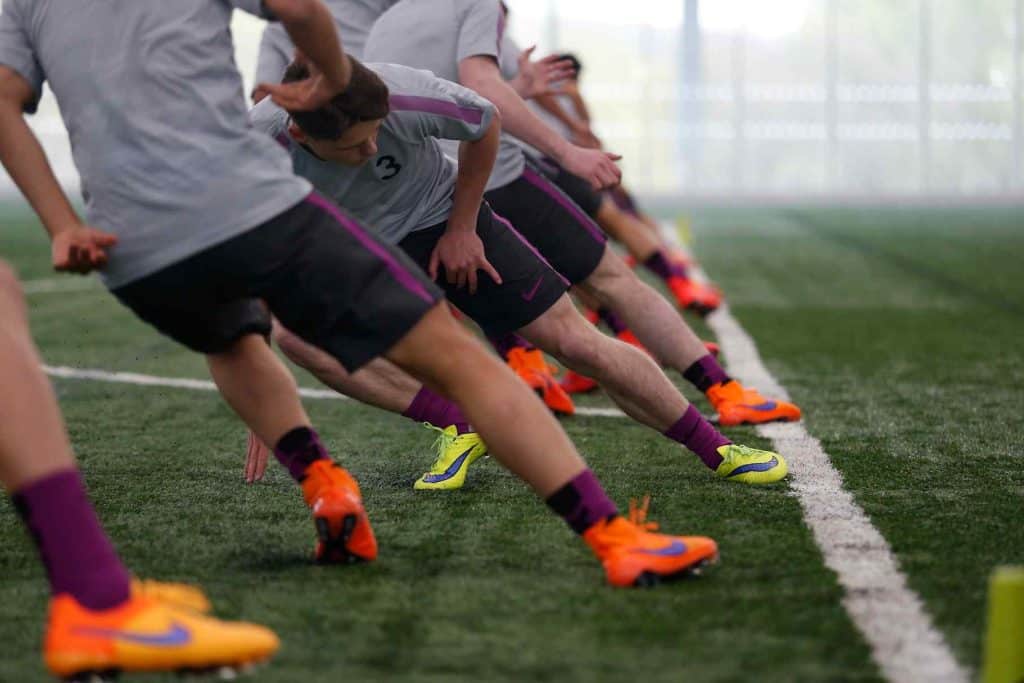
Playing soccer can be a fun and rewarding experience, but it does take time and dedication to become proficient at the sport. The amount of time it takes to learn to play soccer depends on various factors, including your age, physical ability, and prior experience with sports or other physical activities.
If you are a beginner and have no prior experience with soccer or other sports, it may take you longer to learn the basic skills and techniques of the game. However, with consistent practice and the guidance of a coach or experienced player, you can expect to make progress and see improvement in your skills over time.
Young children, who are still developing their physical coordination and endurance, may also take longer to learn the game compared to older players. However, it is crucial to remember that soccer is a sport that people of all ages can enjoy, and it is never too late to start learning.
One way to speed up the learning process is to practice regularly and consistently. This can involve joining a team or club, practicing with friends, or working with a personal coach or trainer. It is also important to pay attention to your physical conditioning and stay in good shape, as this will help you perform at your best on the field.
Finally, it is important to be patient and not get discouraged if you don’t see immediate progress. Like any new skill, learning to play soccer takes time and practice. With dedication and perseverance, you can become a proficient soccer player and enjoy all the benefits that the sport has to offer.
What Age Is Best To Start Soccer?
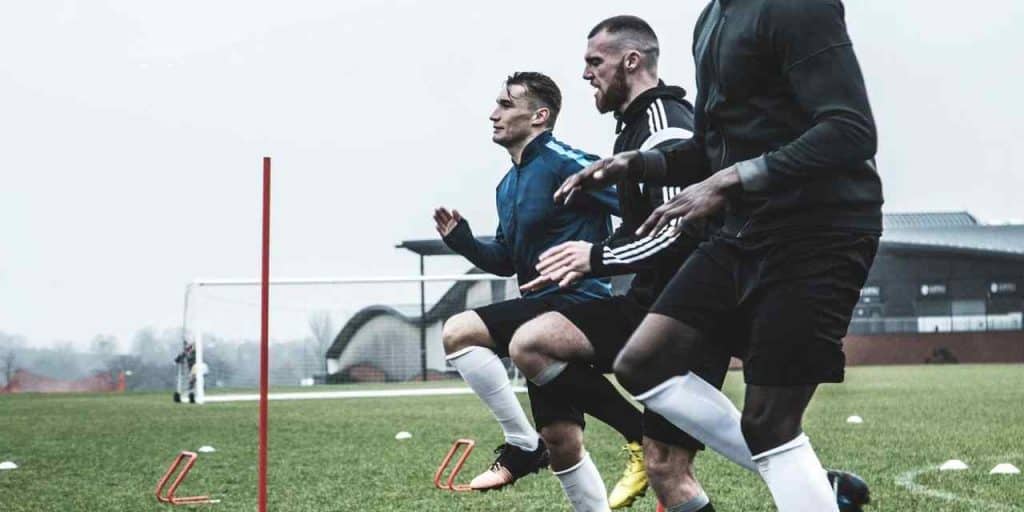
When it comes to starting soccer, age is just one factor to consider. While it is never too late to start playing soccer, specific age ranges may be more conducive to learning and excelling at the sport.
For young children, starting soccer around the age of 4 or 5 can be a great way to introduce them to the sport and help them develop fundamental skills such as balance, coordination, and teamwork. Children are also more receptive to learning new things at this age and may be more willing to try new activities.
As children get older, around the age of 7 or 8, they may be ready to start participating in more structured soccer programs and leagues. This is the age when children are typically able to understand and follow more complex rules and strategies and when their physical abilities, such as speed and endurance, begin to improve.
Starting soccer at this age can also help children develop critical social skills and make new friends, as they will interact with their teammates regularly.
While starting soccer at a younger age has its benefits, it is also important to consider the individual child’s interests and abilities. Some children may not be ready to play soccer until they are a bit older, while others may be more advanced and ready to start at a younger age.
Ultimately, the best age to start soccer depends on the child’s needs and circumstances. Finding a balance between encouraging children to try new things and not pushing them too hard or too fast is vital. In any case, it is never too late to start playing soccer and enjoy its many benefits.
Final Thoughts
Learning to play soccer requires dedication, practice, and a willingness to improve. It is crucial to start by developing the basic skills of dribbling, passing, and shooting and then building on these foundations with more advanced techniques and strategies.
By joining a team and participating in organized games and drills, players can gain valuable experience and learn from more experienced players and coaches.
Additionally, watching professional games and studying the strategies of successful players can help players improve their skills and knowledge of the game.
With hard work and determination, anyone can learn to play soccer and enjoy the many physical and mental benefits the sport offers.



